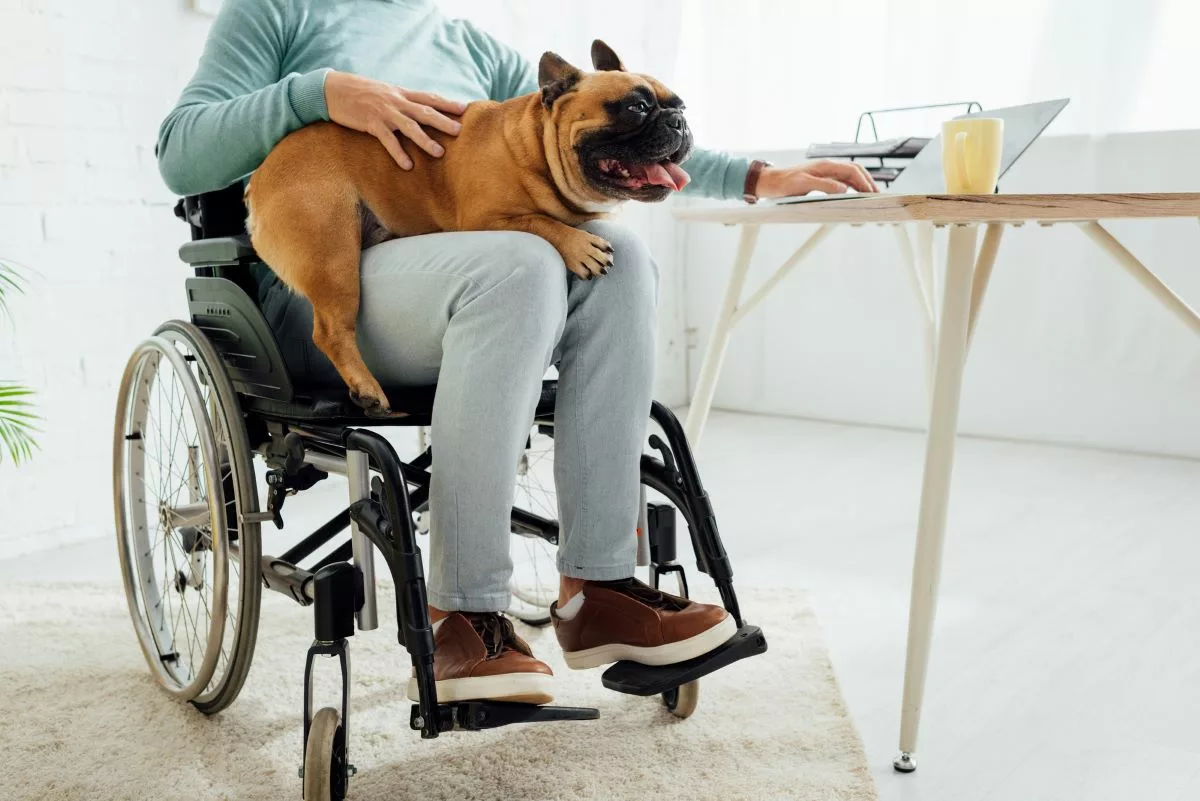
Living with a disability can present a multitude of challenges, both physical and emotional. One way of enhancing your quality of life and improving your overall well-being is to get a dog. The bond between humans and man’s best friend can be highly therapeutic, particularly for those who may struggle to communicate their feelings to others.
In this article, we take a look at how owning a dog can make such a positive impact on those living with a disability.
Emotional support and companionship
Research has shown that disabled individuals are 61% more likely to feel lonely compared to adults without a disability, and this is higher for younger disabled people. One of the main reasons for getting a dog is that they can fulfill the need for social interaction and affection.
Dogs are great emotional support animals since they provide unconditional love and companionship. Simply stroking, hugging, or touching a dog can quickly calm us down and reduce our stress levels. The strong bond that can be formed with a dog is enough to reduce feelings of isolation and boost mood and well-being.
Sense of purpose and responsibility
Owning a dog is a big responsibility but one that gives you purpose. Taking good care of them is important, making sure they are fed, offered water, and given medical attention when needed. This can be deeply fulfilling, helping to boost self-esteem and provide a sense of accomplishment.
It’s not just the basic needs of the dog that need to be met, however. You must also provide them with a comfortable and loving home. That means getting them some sensory toys to play with, a luxury dog bed for them to relax in, and some accessories to get them ready for going outside. Meeting these needs will only solidify your bond further.
Physical activity and mobility
As dogs need regular exercise, owning one can encourage physical activity and mobility, which is essential for certain disabilities. You don’t need to do anything too strenuous, daily walks or playtime with your pup is enough to help you both stay active. This responsibility can also provide structure to your daily routine, promoting better physical health.
A service or guide dog is particularly useful for those who would not usually have the confidence to go outside due to safety. It allows these individuals to feel more independent, helping to relieve symptoms of depression and cardiovascular health too.
Social interaction and engagement
Those living with a disability can sometimes feel isolated from the community and may find it difficult to engage with others. By walking your dog or visiting pet-friendly places, you open yourself up to encounters with other pet owners, fostering new connections and friendships.
These new connections can then provide social support and practical help in the future, elevating our sense of belonging and our psychological well-being.
Follow me down the rabbit hole!
I'm Alice and I live with a dizzying assortment of invisible disabilities, including ADHD and fibromyalgia. I write to raise awareness and end the stigma surrounding mental and chronic illnesses of all kinds.








